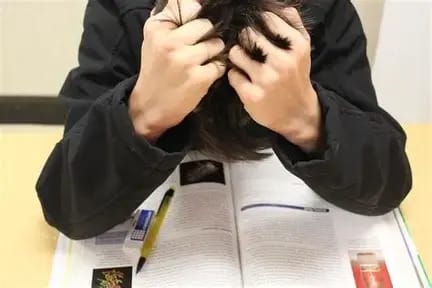
image courtesy Impact for Kids
Despite official rhetoric, students with disability sometimes face a system that excludes them at the very moment they’re told to plan their lives
Across Australia, Year 10 students are beginning to make decisions about their future. They’re choosing potenial careers; often guided more by hope than knowledge. Schools hum with nervous energy.
But Lara Maia-Pike from QUT’s Centre for Inclusive Education says that for students with disability, the process isn’t just stressful - it’s quietly, systematically exclusionary.
Her research finds that at exactly the moment when choice and aspiration are supposed to take centre stage, many students with disability find doors already closed. The curriculum is constrained, expectations are lowered, and the future shrinks before it even begins.
Of course, this is not just a problem for People with Disability. Maia-Pike says “increased pressure on young people to pursue university pathways [is] reinforced by government higher education policies shaping public perceptions of what success after school looks like”.
This effectively closes doors, particularly to those who remain otherwise marginalised, either by socio-economic grouping or ability status.
Instead of opening doors to new careers, government changes to tertiary education pathways have had the effect of closing off options, rather than opening new ones. Maia-Pike says this is exactly when “various forms of disadvantage, like living in a remote location or having a disability can overlap, creating additional barriers to achieving educational and career aspirations.
__________________________________________
[continue reading from newsletter]
A Future defined by aspiration or the expectations of others?
Research shows that students with disability—particularly in mainstream settings—encounter a “culture of low expectations” long before they walk into a careers meeting. Adjustments are inconsistent. Support is patchy. And consultation about future plans is rare or symbolic.
Many students are told, explicitly or implicitly, that the university isn’t for them. That vocational pathways are safer. Or that employment might not be realistic at all.
This is compounded by geography and class. Where you live and what your parents earn often matters more than your dreams. And if you’re disabled and rural, or disabled and poor, the barriers multiply.
Subject selection might not seem important. But it sets the tone. It narrows the field. And for students already battling bias, it confirms a message they’ve heard before: lower your sights.
Policies That Pretend, Structures That Persist
The Australian Universities Accord recently claimed students with disability had “achieved parity” in access. It used this to justify sidelining disability from future targets.
But the claim doesn’t hold up. Maia-Pike found advocates say the data is flawed and the conclusion premature. Participation is not the same as parity—and inclusion is not the same as presence.
In reality, disabled students are more likely to be bullied, suspended, and pushed out of school altogether. Nearly one in four leave before turning 15.
Alternative routes to education do exist, but they’re costly, confusing, and rarely lead to equity. Meanwhile, government programs treat disability as a deficiency to be managed as opposed to being a constituency worth investing in.
Maia-Pike says the new $22 million Disability Employment Centre of Excellence can’t fix what starts in school: the quiet assumption that students with disability should settle for less.
Young people with disability continue to face inaccessible recruitment systems, employer ignorance, and systemic discrimination. For autistic people, the unemployment rate is more than six times higher than for the general population. This isn’t a pipeline problem. It’s the predictable result of a broken system.
That system starts by excluding students from subjects. It continues by excluding them from jobs. And it ends in a society where equality is still aspirational rhetoric, not lived experience.
Maia-Pike says we need to stop asking students with disability to be grateful for crumbs while their peers are handed the future.
Education, as the UN insists, is the right that enables all other rights. Until Australia treats these issues seriously, disability will remain a mark of disadvantage, not just difference.
